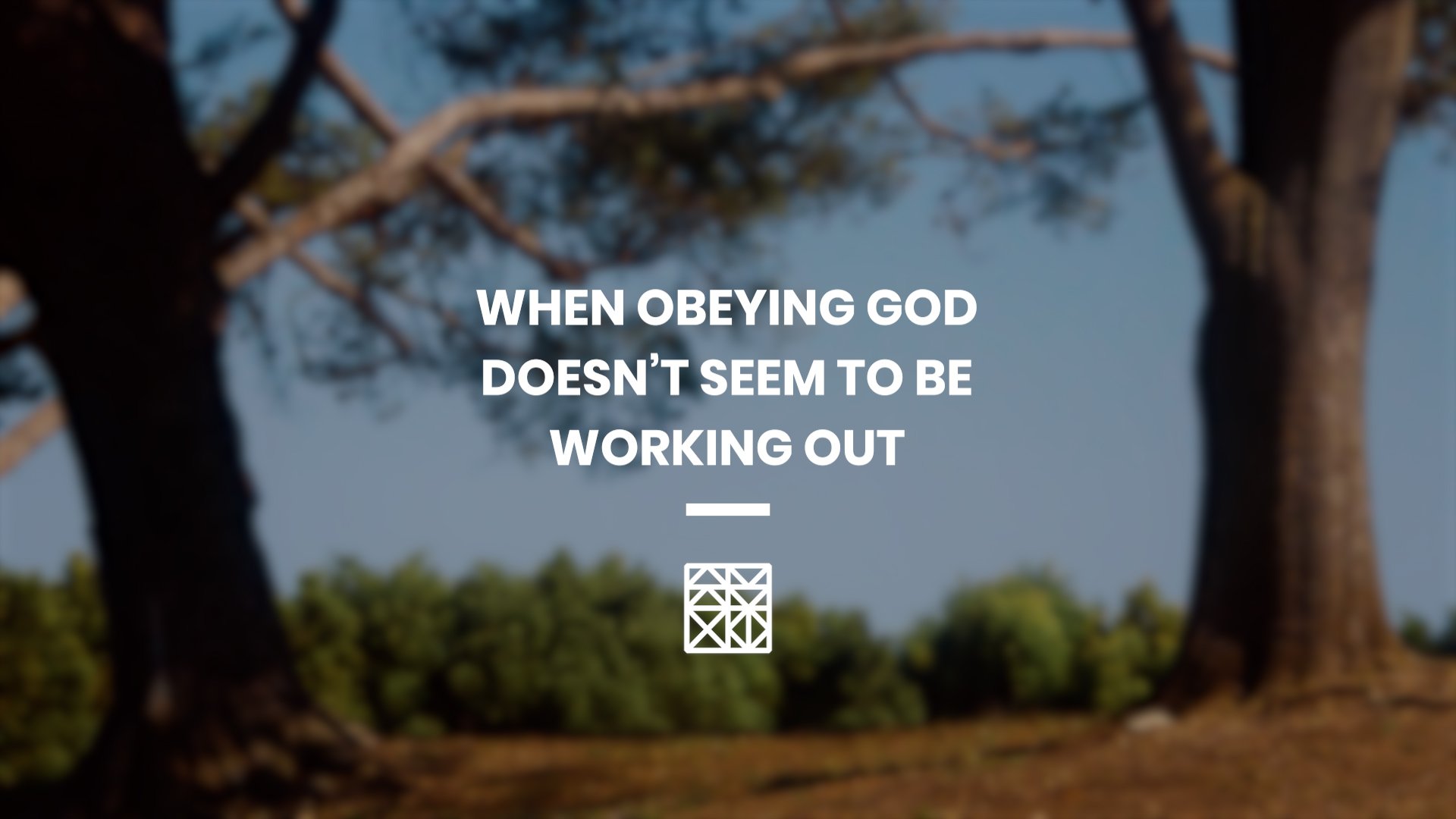EXODUS 5 - WHEN OBEYING GOD DOESN’T SEEM TO BE WORKING OUT
Exodus 5
In the opening verses of this Chapter, we see Moses and Aaron doing what good leaders of God’s people should do, which is to seek to obey God themselves, and then seek to lead His people in obeying God also. They go to Pharaoh to ask for freedom for the people of Israel to take some time off from their labors as slaves of Pharaoh, so that they may go out into the wilderness to have a time to worship God. They make this request, not on their own authority, but on the authority of God who sent them, for they preface it with “Thus says the Lord.” They make this request for freedom, not so that the people can do their own thing or have their own way, but rather so that they can obey God.
In like manner, our freedom in Christ is not so that we can live as we choose, but rather so that we can live as He directs us to live.
Pharaoh admits in Vs. 2 that he does not know God, and based on that truth, declares that there is therefore no reason for him to obey God. He actually makes a very good point, because without knowing God, no one will really have a desire to obey Him. But, as we come to know Him, through Christ, as a Holy, but also good & loving God, who calls us to obey Him for our own good, then we will want to obey Him. The greater our intimacy with God, the more we will want to obey Him.
Pharoah admits in Vs. 4-5 that he saw the purpose of God’s people as being to serve him, not God. This admission is emblematic of sin, Satan, and our flesh, all of which desire to have us serve them, rather than God. The enemies of God get very irritated when we seek to serve God, rather than them, and they will often then strike back with a vengeance, which is what we see in Vs. 6-9, in Pharoah’s decision to give the people less straw, but make them work even harder to make bricks.
In Vs. 10-14, we see that the immediate effect of the obedience of Moses and Aaron was to make things worse, not better, for the people of Israel. In Vs. 15-22, we see that the overseers of the slaves, who are fellow Israelites, turn on Moses, and Moses then actually accuses God of having brought evil upon His own people. This is not only a very short-sighted perspective on the part of Moses, but also denies the basic truth of God’s essential goodness that is seen many places in Scripture, such as in James 1:17, Ex. 34:6, 1 Chron. 16:35, and Ps. 145:9. Not only that, but Moses should have considered the source of this criticism, for these overseers were already in a compromised position by having betrayed their own people.
Sometimes, we do not immediately see the beneficial effects of our obedience to the Lord. Sometimes, it takes time for them to become evident to us. Yet, while the beneficial effects of obeying God are not always immediately apparent to us, we need to know that our obedience brings pleasure to God no matter what. In 1 Sam. 15:22, the prophet Samuel, reflects God’s heart when He says, “Has the Lord as great delight in burnt offerings and sacrifices, as in obeying the voice of the Lord? Behold to obey is better than sacrifice.” Prov. 21:3 declares “To do righteousness and justice in more acceptable to the Lord than sacrifice.
When we are in an intimate relationship with God, through Jesus Christ who makes that possible by removing our sin and putting the Spirit of God within us, then knowing that our obedience pleases God, and honors Him as Lord of our lives, is what will motivate us to obey, even if we don’t see any immediate beneficial effects of it in our own lives.
Also, God’s ways are different from our ways, as Isaiah declares in Is. 55:8-9, so what to us may seem like a defeat, can, in His sovereign hands, often be a victory. This was true when Joseph’s brothers sold him into slavery, only to later find out that as a slave in Egypt, God had caused him to rise up to be Pharoah’s right hand man, and be the one in charge of all the grain that Egypt had stored up for the famine in the land, so that he could be the one to dispense it to his starving family, and thus prevent the line of Messiah from being extinguished. This was also true when God took what looked like a total defeat to the disciples of Jesus, and turned His death on the cross into the greatest victory ever seen, as it resulted in our freedom from sin, Satan, and death. This is why Rom. 8:28 tells us that God is able to work all things together for good for His people.
So, when obeying God doesn’t seem to be working out for us, we need to remember that the beneficial results of it are not always immediately apparent to us, but that it brings great pleasure to our God, and can be used in His hands to do more tham we could ever imagine or think possible.

